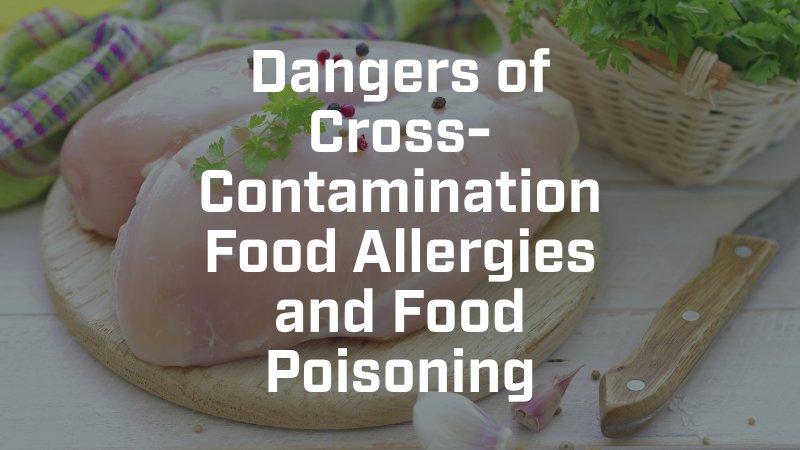All fields are required
Cross-contamination is a serious food safety hazard that occurs when harmful bacteria, allergens, or other contaminants transfer from one surface, food, or environment to another. It is one of the leading causes of foodborne illness.
For individuals with food allergies, cross-contamination can be life-threatening. Even trace amounts of an allergen, such as peanuts, dairy, or shellfish, can cause severe reactions, including anaphylaxis. This can occur when:
For example, a peanut-allergic individual could have a severe reaction if a knife used to spread peanut butter is later used to prepare a supposedly peanut-free sandwich without proper cleaning. Restaurants and food manufacturers must follow strict guidelines to prevent allergen cross-contact, but mistakes can still happen, putting allergic individuals at risk.
Foodborne illnesses are often caused by cross-contamination between raw foods as well as ready-to-eat foods. Harmful bacteria such as E. coli, Salmonella, and Listeria can transfer through:
E. coli is commonly found in raw ground beef and contaminated produce. Consuming food contaminated with E. coli can lead to severe stomach cramps, diarrhea, and kidney complications. Salmonella, found in raw poultry, eggs, and dairy products, can cause fever, vomiting, and dehydration.

Food businesses have a legal duty to prevent contamination and follow food safety regulations. When cross-contamination leads to illness or an allergic reaction, liability may fall on food producers, restaurants, or retailers. If negligence occurs, affected individuals may pursue legal action for:
Food safety laws enforced by the Food and Drug Administration (FDA) and the U.S. Department of Agriculture (USDA) help regulate food handling practices, but mistakes still occur.
Preventing cross-contamination requires proper food handling and hygiene practices, including:
Consumers can also take precautions by carefully reading food labels and being aware of potential cross-contamination risks when dining out or preparing food at home.
Certain foods are more likely to cause cross-contamination if not handled properly. Common examples include:
If you or a loved one suffer an illness or allergic reaction due to cross-contaminated food, contact the Lange Law Firm, PLLC. We can discuss your legal options in a free consultation with our food allergy lawyers and food poisoning attorneys.
Notifications